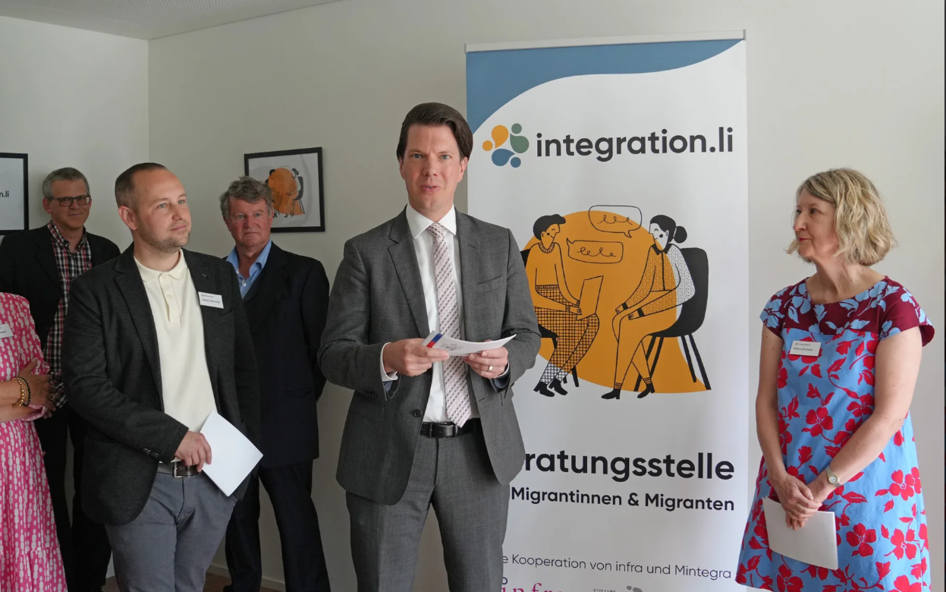Human rights milestones 2024
Association for Human Rights
The independent Association for Human Rights (VMR) has three legal mandates:
| NMRI National Human Rights institution |
OSKJ Ombudsman's office for children and young people |
MOBE |
| The NHRI protects and promotes human rights. It is the independent monitoring and advisory body for human rights in Liechtenstein. |
The OSKJ protects and promotes the rights of children and young people. It is the independent monitoring and and advice center for children's rights in Liechtenstein. |
MOBE protects and promotes the rights of people with disabilities. It is the independent monitoring and and advice center for disability rights in Liechtenstein. |
With this report, the Association is fulfilling its legal mandate to publish an annual report on the development of the human rights situation in Liechtenstein. In 2024, the VMR recorded the following groundbreaking developments in the protection and promotion of human rights:
UN Convention on the Rights of Persons with Disabilities enters into force
On January 17, 2024, the UN Convention on the Rights of Persons with Disabilities came into force for Liechtenstein. This marks the start of a far-reaching reform of disability policy towards comprehensive legal protection and the participation of people with disabilities in all areas of life. Now it is time for the major implementation work, which is being coordinated by the government's Equal Opportunities Division. (More on this in the chapter "People with disabilities").
Paid parental leave is decided
After several years of waiting and preparation, the state parliament passed the law introducing paid parental leave in the fall. Parental leave is a key element in the more equal distribution of paid and unpaid work between both genders and is therefore an important prerequisite for equal rights and gender equality. It enables children to be cared for by their parents in the first few months of their lives and thus supports the child's right to the best possible development and stable relationships. Although only from 2026 - but retroactively to the reporting year - each parent is now entitled to a total of four months of parental leave. Two of these months are remunerated at 80% of the average relevant monthly salary. (More on this in the "Gender equality" section).
Marriage for all becomes a reality
The law introducing marriage for all was passed by parliament in March. This represents a milestone for the legal equality of homosexual couples and their recognition. As a result, homosexual couples now have the same rights in the adoption process, tax law, inheritance and pension and social security entitlements. In addition to this legal level, "marriage for all" also has a strong symbolic meaning, as it shows that love and partnership are of equal value regardless of sexual orientation and receive the same recognition in society. The law introducing marriage for all will come into force in Liechtenstein from January 2025. (More on this in the chapter "Sexual orientation and gender identity").
Figure: A reason to celebrate at Pride: Marriage for all has been in force in Liechtenstein since 2024. Photo: Liechtensteiner Vaterland.
Advice center for migrants opens its doors
With the introduction of the advice center for migrants (integration.li), the government created a central integration service and successfully implemented an urgent recommendation from the report by the Council of Europe's Commission against Racism and Intolerance (ECRI). Another important step towards improving information and access to integration was the revision of the integration.li information platform - expanded and multilingual, it opens the door to information and integration offers for everyone. (More on this in the chapter "Migration and integration").

Figure: In June, the advice center for migrants was opened by Minister of Society Manuel Frick - a milestone for integration in Liechtenstein. Photo: Gregor Meier
First ageing strategy is adopted
In a broad-based participatory process, the government developed and adopted an ageing strategy for the first time as the basis for a sustainable and human rights-based ageing policy. By focusing on self-determined ageing, social participation, barrier-free living and care as well as comprehensive advice and integration, the ageing strategy strengthens the rights and protection of older people and establishes their dignity, autonomy and participation as central concerns of social policy. Now it's time for implementation! (More on this in the chapter "Health and social rights")
A national psychiatry concept is presented
After several years of preparation, the government presents a national psychiatry concept for Liechtenstein for the first time in spring. It marked the beginning of an important systematic examination of gaps in care, particularly in the care of children and adolescents. In October, the first concrete measure announced was an improvement in child and adolescent psychiatric services: additional specialists are to facilitate access, as there has been a lack of local and timely support to date. In November, workshops were held with representatives of institutions and specialist agencies to develop proposals for further implementation.
